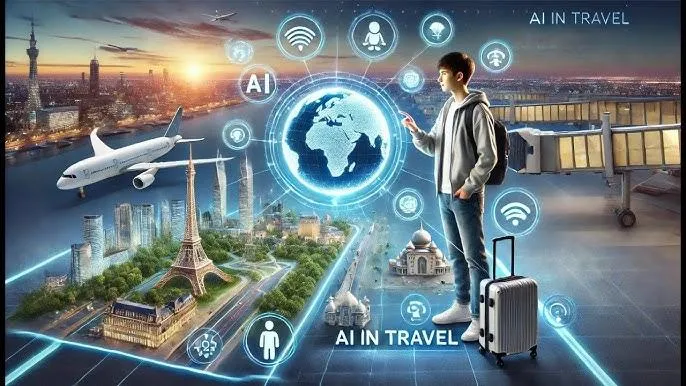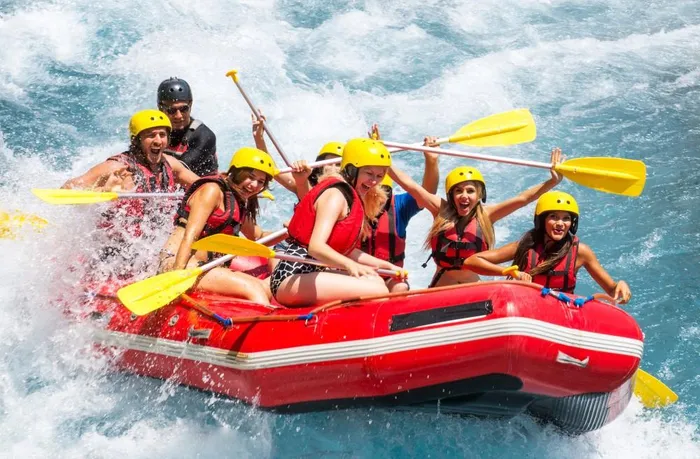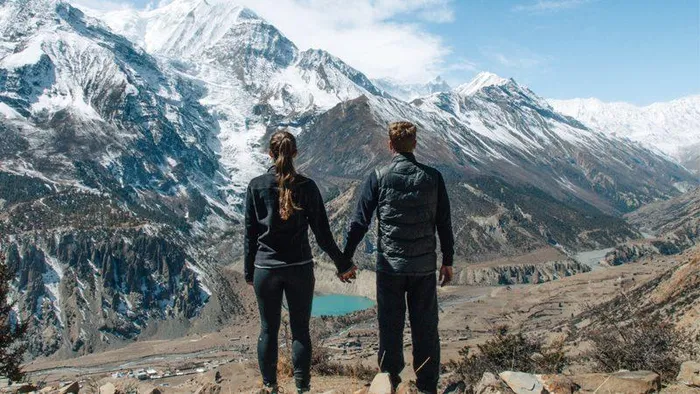AI and travel: The trip of a life time or a safe, boring experience?

AI can make travel a lot easier, but it can also make it remove the element of serendipity
Image: Supplied
Artificial Intelligence (AI) has the potential to disrupt our tourism landscape. But will this be a force for the good of the industry and our citizens, or will AI further enhance the digital divide?
The reality is likely to be far more nuanced and more complex. We should, however, take this opportunity to shape the direction of travel (excuse the pun) rather than wait and respond to changes in our tourism environment.
AI is helping tourism adapt to a massive social transformation that many organisations haven't fully grasped. Until the late 80s, people went out of the home for experiences and entertainment. We engaged with the world outside the home and brought back those experiences and learnings into the home.
The opposite is now true. Most tourism products are first engaged with in the home via small or large screens: a TV show, Instagram or TikTok posts often curated by influencers and/or AI. This grand social shift means we are spending proportionally much more of our time and money on in-home entertainment.
Today, the entertainment and tourism industry must engage people at home. First, through technology, and then convince them it's worth leaving. This reversal requires a completely different approach to marketing and experience design, and AI sits at the heart of this transformation.
One of AI's most promising applications lies in redistributing tourism demand across our magnificent but often overlooked destinations. If we can spread demand over seasonality, over time of day and over geographical space, we have a more even distribution of visitors (domestic and international).

AI can bring a whole range of options to your travel plans.
Image: File
Spreading the demand curve is positive for both the visitor and the tourism offering as one of the biggest issues for almost all tourism offerings is the lack of a consistent and predictable demand. Using AI is a smart use of this new technology to spread demand across time and space and guide people to often overlooked, but equally stunning sites.
The technology already exists in our pockets. The same AI that tells you the quickest route to work could redirect tourists from overcrowded hotspots to hidden gems, considering not just traffic patterns but seasonal flows, environmental carrying capacity, and personal preferences.
But AI in tourism isn't without its challenges. Will AI guide us to new experiences or further push us to only experience those we feel safe with? In other words, will it further enhance the "Netflix effect"; where recommendation algorithms guide us to just more of what we know we like, or will AI help us to try something new?
While AI recommendations may support increasingly sophisticated personalisation of out-of-home experiences, I believe it wraps us in an experiential security blanket. We take less courageous decisions and we don't allow for serendipity - those chance encounters with people and places that have the opportunity to delight us, or provide the base of a holiday horror story. Both of which are memorable and authentic.
Yet AI also offers remarkable potential for democratising access to our incredible landscapes. Real-time translation could help multilingual tour groups, while audio descriptions could make the wilderness accessible to visually impaired visitors. Cape Nature's voice mapping technology exemplifies this thoughtful integration, offering "the podcast of your walk" while preserving the solitude that makes wilderness special.

Often travel is about connections both personal and societal and experiences whether fantastic or horrific. Don't let AI make travel so safe that it removes the human connection.
Image: File
Perhaps nowhere is this transformation more exciting than in the opportunities it creates for young South Africans. There is a wonderful intersection where younger generations find themselves uniquely positioned: they'll be living in the future longer, they're digital natives comfortable with technology, and they want jobs with purpose.
Young people understand both technology's capabilities and its limitations. They're the generation that can harness AI's power while maintaining the human touch that makes tourism experiences meaningful.
The future we get depends on the choices we make today. Will we use AI to create deeper connections to our natural heritage, or will it disconnect us from authentic experiences? Will it democratise access to our incredible landscapes, or create even more exclusive experiences?
The technology is here. The question is how thoughtfully we'll use it to showcase the best of what South Africa has to offer, from our world-renowned destinations to the hidden gems waiting to be discovered.
- Sabine Lehmann is the Director of CURIOSITAS and an MPhil in Futures Studies from Stellenbosch Business School.

Sabine Lehmann
Image: Supplied